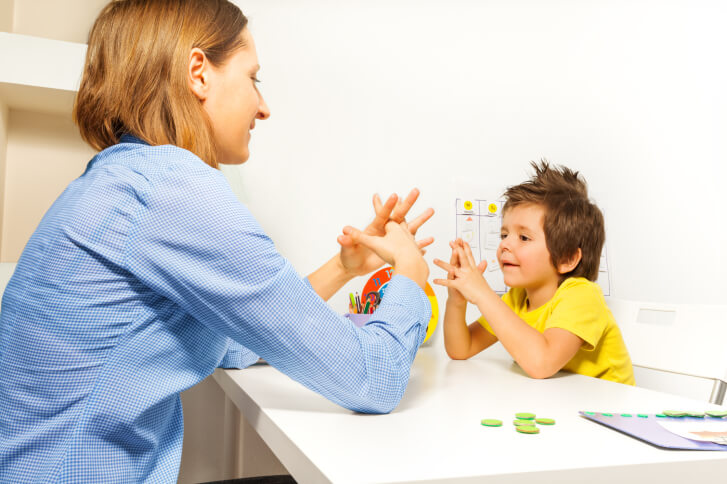[vc_row][vc_column][vc_column_text]
Have you ever talked to your child about mental health or mental illness? You may think that kids are too young to understand anything about mental illness and that it’s a waste of time trying to explain something they won’t get. However, kids are much more observant than they let on, and they pick up on a lot that we don’t give them credit for. Chances are if you are struggling with your mental health, your child has noticed. They may not be able to put it into exact words, but they can tell that something is wrong or that you’re not your normal self. They may even be worried that they’ve done something to upset you. The scary part is the not knowing – when your child doesn’t know what to expect, they can’t prepare themselves. So, do your best to have age-appropriate discussions with your child throughout their life, so there’s less mystery + stigma around the topic. You have the opportunity to talk about mental health in a non-stigmatizing way, which helps to make the world more accessible for folks with mental illness.
In addition to learning about mental health relating to their caregivers, children themselves can experience mental health problems. The CDC has found that 7.1% of children age 3-17 have diagnosed anxiety and 3.2% of children in the same age group have diagnosed depression. Mental illness generally doesn’t discriminate by age, so it’s important to give our children accurate information about mental health because you never know when they may need it. Here are some tips for talking to your child about mental health:
Make sure you know what you’re talking about
Mental health isn’t something that we tend to grow up learning about, so the first step to helping your child understand is to make sure you understand. Take some time to educate yourself on mental health issues, like symptoms, how things are diagnosed, treatment options, causes, and risk factors. It’s also okay to say “I don’t know the answer to that, but I’ll find out and let you know.” We don’t always know everything right off the tops of our heads, and there’s nothing wrong with having to do some research. In fact, it may be helpful to your child to show them what accurate sources look like so they aren’t confused by the misinformation that is out there on mental health.
Reassure them that they’ve done nothing wrong
If your child has probably noticed that you’re struggling with your mental health or if they begin to struggle with their own mental health, it’s especially important to make sure they know that they’ve done nothing wrong. The younger your child is, the fewer concrete facts they need about what’s going on (too much info will just confuse a young child). If your child is old enough to ask questions about what’s going on, make sure to take the time to answer them. The less mystery there is surrounding mental health in your household, the less there will be to fear from it.
Explain in terms they understand
Sometimes, depending on how old the child is, kids have a hard time conceptualizing what they cannot see. When someone has a physical injury or illness, they can see with their own eyes that something has happened, but mental illness is harder to see. Try using terms they’ll understand to explain what you’re trying to say. Instead of saying “Mommy has depression,” say something like “You know how you feel sad sometimes and don’t want to spend time with your friends? Mommy sometimes feels that way too. It doesn’t mean I don’t love you or want to spend time with you, but sometimes my brain needs alone time to help make me feel better.”
Teach them about treatment options
Kids tend to catastrophize when they don’t understand. If your child learns that you suffer from depression, for example, they may be worried that they’ll get it too, that you’ll die, or some other scary possibility. Do your best to reassure them without lying to them (so don’t say that they won’t ever develop a mental illness – you can’t know that) that mental illnesses are treatable. If you’re going through treatment, share with them the ways you manage your illness. Growing up knowing there are many treatment options available for mental illnesses can make the idea of developing one less scary.
Have regular check-ins
Mental health is not a one-conversation kind of subject. We all deal with our mental health for our entire lives, so this should be an ongoing topic of discussion in your household. Make sure your child knows they can come to you and talk – do your best to keep your tone neutral (not judgmental) when they talk to you, answer their questions, validate their feelings, talk about your own mental health openly, and model healthy coping strategies in front of them.
Not talking to your child about mental health really does them a disservice. Mental health is a stigmatized topic, especially in the United States, so it’s important that we give our kids every opportunity to learn about it and reduce the mystery surrounding mental illness. If you need tips for how to talk about mental health with your child, our clinicians can help you find a way that is right for you + your child.
[/vc_column_text][/vc_column][/vc_row][vc_row][vc_column][/vc_column][/vc_row]

